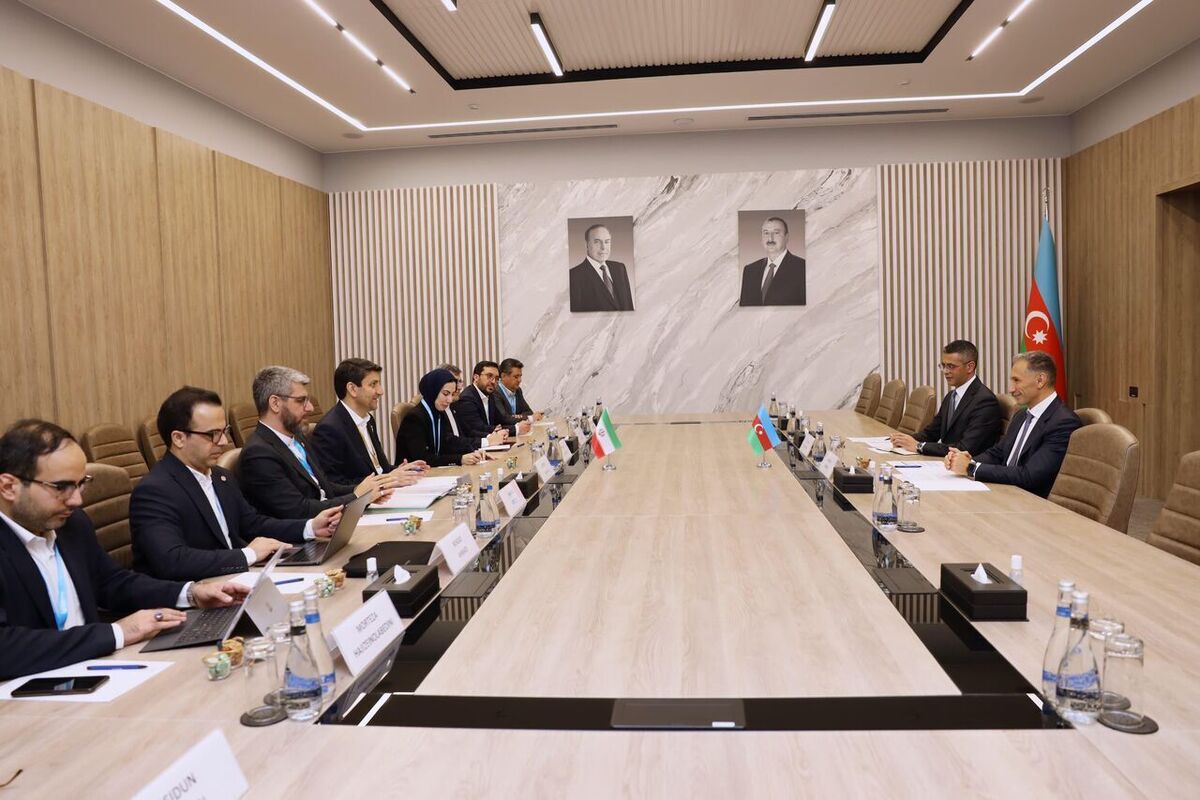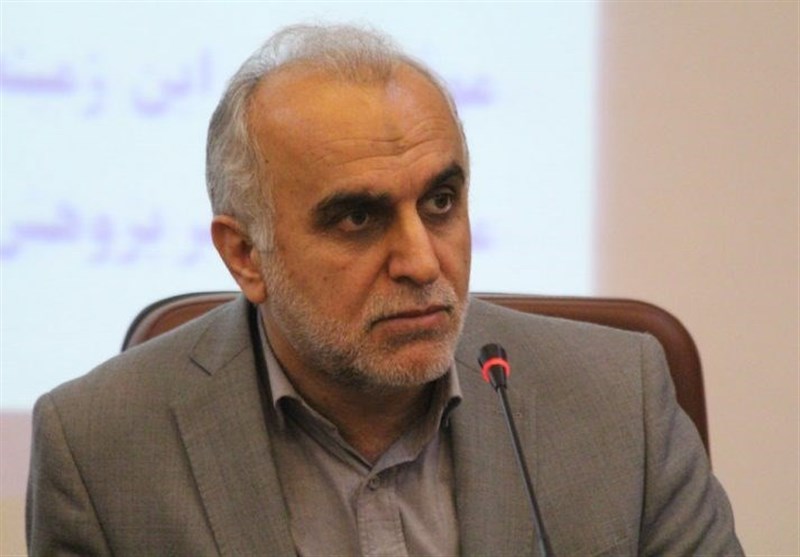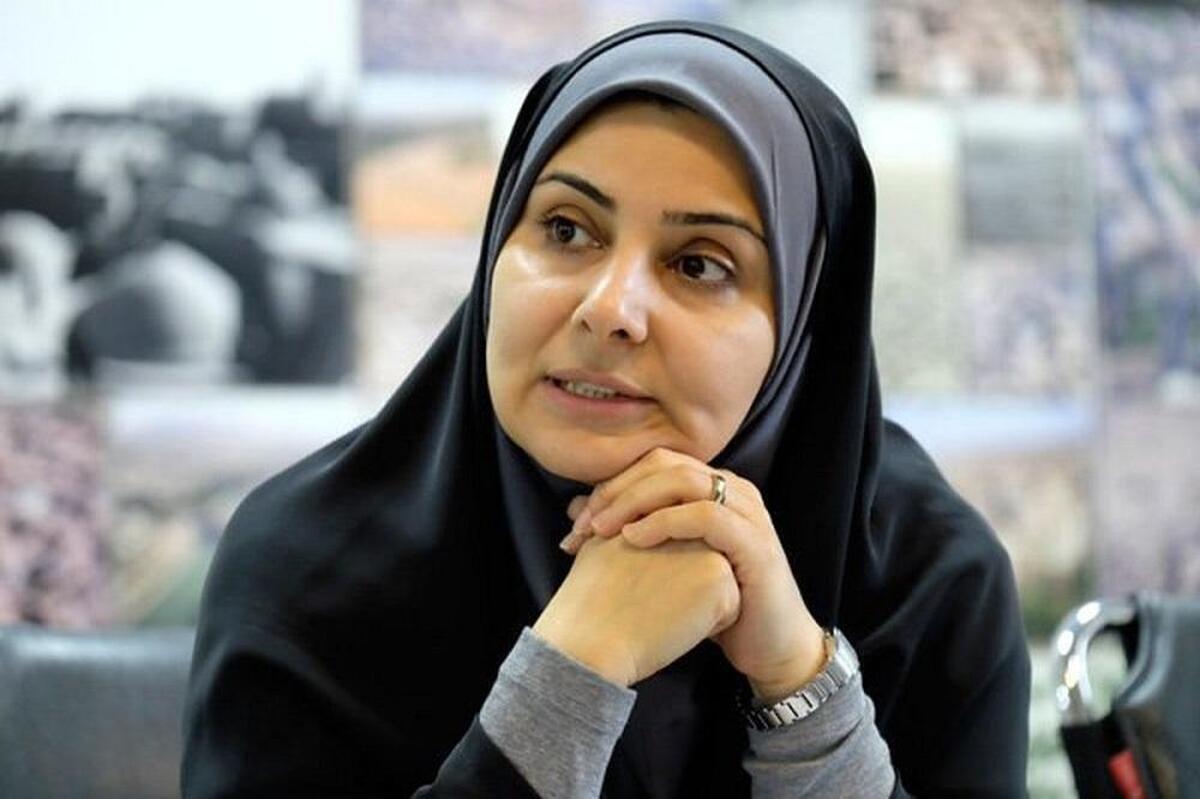
Iran Economy Minister in Baku to Expand Economic Cooperation

EghtesadOnline: Iran's Economy Minister Farhad Dejpasand was in Baku over the weekend (Thursday and Friday) to attend the 13th Iran-Azerbaijan Economic Cooperation Commission's sessions.
The Iranian minister was accompanied by a delegation of Iranian officials and private sector representatives, IRNA reported.
In their Baku meetings, the two sides surveyed ways of expanding economic and commercial cooperation in eight specialized committees, namely trade, industries and investments; monetary and banking; customs and border affairs; transportation and transits; energy and environment; agriculture and health; culture, social welfare and humanitarian affairs; and tourism.
Upon arriving in Azerbaijan's capital, Dejpasand said there is vast potential for Tehran and Baku to expand cooperation in a host of fields, including monetary affairs and finance, tourism, water, electricity, railroad and agro outsourcing, Financial Tribune reported.
“The best way to increase bilateral economic ties between our two countries is by forming joint companies in the fields of investment, services, tourism and international trade," he said.
"Iran and Azerbaijan’s presidents have met 12 times over the past five years and more than 100 high-ranking delegations have been exchanged between the two countries during the same period. These, in fact, show the extent of our vast bilateral relations,” he added.
Azerbaijan Experiences Highest Growth in Trade With Iran
Azerbaijan’s Minister of Economic Development Shahin Mustafayev, who co-chaired the joint economic commission meeting in Baku together with Dejpasand, said trade between Azerbaijan and Iran increased by 74% in 2018, which is the highest growth in Azerbaijan’s trade with economic partners during the period.
According to the State Customs Committee of Azerbaijan, trade turnover with Iran in 2018 amounted to $446.03 million, $31.23 million of which accounted for the export of Azerbaijani products to Iran.
Latest data released by the Islamic Republic of Iran Customs Administration show Iran’s non-oil trade with Azerbaijan stood at 747.55 million tons worth $357 million during the 10 months to Jan. 20 to register a 30.19% and 33.39% growth in tonnage and value respectively YOY.
Iran exported 706,608 tons of goods worth $340.36 million to Azerbaijan, up by 35.20% and 36.63% in tonnage and value respectively YOY.
Azerbaijan was Iran’s 12th export destination in the world during the period.
Iran’s exports to Azerbaijan included liquefied natural gas and confectionery.
Iran imported 40,948 tons of commodities worth $17.29 million from Azerbaijan, down 20.59% and 9.12% in tonnage and value respectively YOY, a majority of which were non-alloy semi-finished iron/steel products.
Azerbaijan was the 60th exporter of goods to Iran in the world.
Hossein Pirmoazzen, chairman of Iran-Azerbaijan Chamber of Commerce, proposed that the two countries sign a preferential trade agreement to increase bilateral economic transactions.
The two sides agreed to establish an arbitration committee to help settle any dispute between Iranian and Azeri economic players and businesspeople.
On the sidelines of the two-day event, Dejpasand met with Azerbaijan's Minister of Agriculture Inam Karimov on Thursday where collaboration capacities in agro outsourcing, livestock quarantine and food security were discussed.
The Iranian minister also met with Governor of the Central Bank of Azerbaijan Elman Rustamov the same day and explored avenues of expanding cooperation in the fields of banking, insurance and finance.
Dejpasand was also scheduled to meet Azerbaijan's President Ilham Aliyev on Friday.
Call for Taking Full Advantage of INSTC
The Iranian minister called on Azerbaijan to take full advantage of the International North-South Transport Corridor via Iran.
Shahin Mustafayev called on Baku, Tehran and Moscow to take advantage of the newly-inaugurated Qazvin-Rasht Railroad to boost commercial interactions.
Dejpasand also held talks with the head of Azerbaijan Railways, Javid Gurbanov, and discussed the two countries' capacities in completing INSTC, the Rasht-Astara Railroad in particular.
The long-awaited Qazvin-Rasht Railroad was officially inaugurated by Iranian President Hassan Rouhani earlier this month in the northern city of Rasht, Gilan Province. This rail route was one of the main missing links along the International North-South Transport Corridor.
A rail route connecting Rasht to Astara on the border with Azerbaijan is another missing link along INSTC. The newly-inaugurated railroad has the capacity to transport 1.4 million passengers and around 5.1 million tons of cargos in the first year.
The two sides plan to increase these figures to 2.8 million passengers and 7 million tons in the framework of a 20-year Vision Plan (ending 2025).
According to Iran's Roads and Urban Development Minister Mohammad Eslami, passenger and cargo trains can speed up to 160 kilometers per hour and 120 km/ph respectively on this route, which has 53 tunnels and 45 bridges along the way, collectively stretching for 22 kilometers and 8.4 kilometers respectively.
Kheirollah Khademi, the head of Construction and Development of Transportation Infrastructure Company of Iran, says the inauguration of Qazvin-Rasht Railroad will cut cargo transportation time from India to the Suez Canal from 36 days to 18 days, and reduce costs by around 35%.
Since the INSTC rail route has yet to be completed, multimodal transportation will be used (by road, sea and rail) until the missing links come on stream.
INSTC is a major transit route designed to facilitate the transportation of goods from Mumbai in India to Helsinki in Finland, using Iranian ports and railroads, which the Islamic Republic plans to connect to those of Azerbaijan and Russia.
The corridor will connect Iran with Russia’s Baltic ports and give Russia rail connectivity to both the Persian Gulf and the Indian rail network.
This means goods could be carried from Mumbai to the Iranian port of Bandar Abbas and further to Baku. They could then pass across the Russian border into Astrakhan before proceeding to Moscow and St. Petersburg, before entering Europe.
INSTC would substantially cut the travel time for everything from Asian consumer goods to Central Eurasia’s natural resources to advanced European exports.
The multimodal route is estimated to reduce the time and cost of transportation of goods between India and Europe from 40 to 15 days. The corridor is said to have the potential of diverting up to 10 million tons of India-Europe trade to the route.
Currently, 72 million tons of goods are shipped from India to Europe and 25 billion tons are transported in the opposite direction every year.
The INSTC project has three founders, namely India, Iran and Russia. They signed the contract for the project in May 2002.
Today, the corridor features the founding countries, as well as Turkey, Azerbaijan, Kazakhstan, Armenia, Belarus, Tajikistan, Kyrgyzstan, Oman, Ukraine and Syria as main member states and Bulgaria as an observer member, he told Financial Tribune in an interview last year.
"Economic ties between Azerbaijan and Iran will be strengthened through joint rail projects," Javid Gurbanov, the chairman of Azerbaijan Railways CJSC, told reporters in the city of Rasht, located in Iran’s Gilan Province, Mehr News Agency reported.
Noting that more than 270,000 tons of cargo have been transported through the Astara (Azerbaijan)-Astara (Iran) Railroad so far, Gurbanov said there has been a noteworthy increase in cargo transportation on the railroad over the past two months.
"The presidents of both countries attach special importance to the development of economic ties and rail links," he said.
Gurbanov added that the railroad links are beneficial for ensuring the welfare of two countries.
Shahram Adamnejad, deputy minister of roads and urban development for transportation affairs, says Tehran and Baku are planning to sign a contract for financing Rasht-Astara Railroad soon.
When completed, INSTC is expected to increase the volume of commodities currently traded between Iran and Azerbaijan from 600,000 tons to 5 million tons per year, dramatically increasing bilateral trade from the current $500 million per year.



